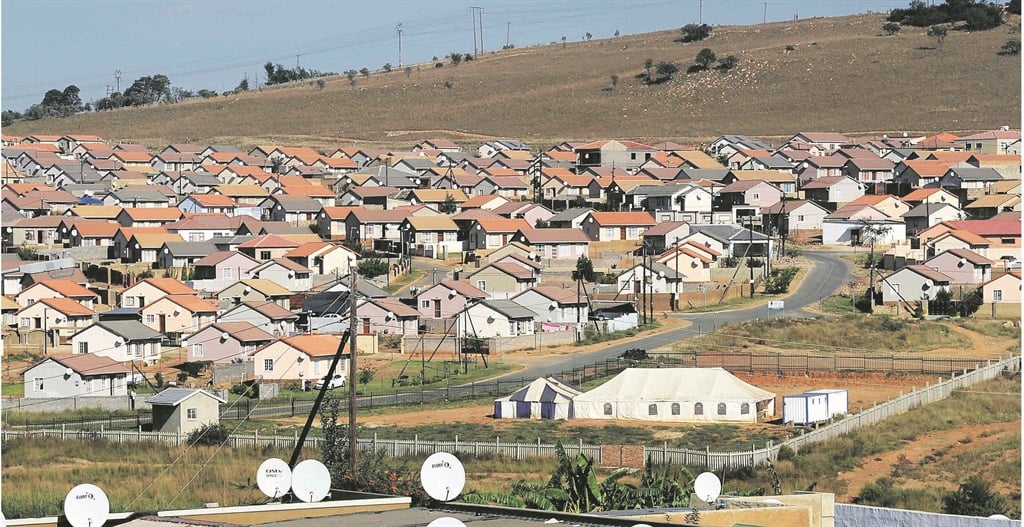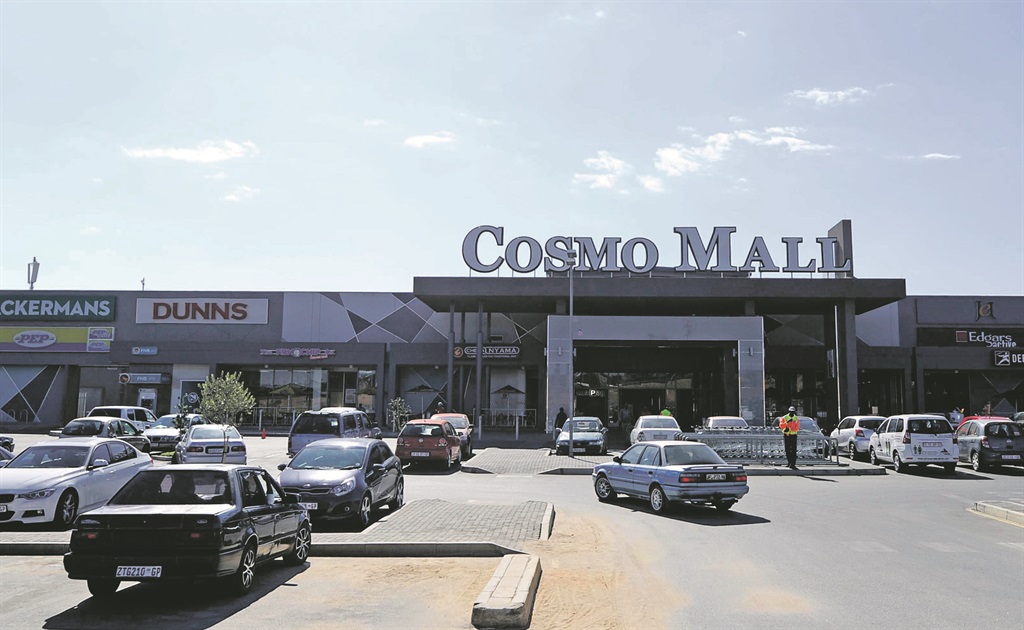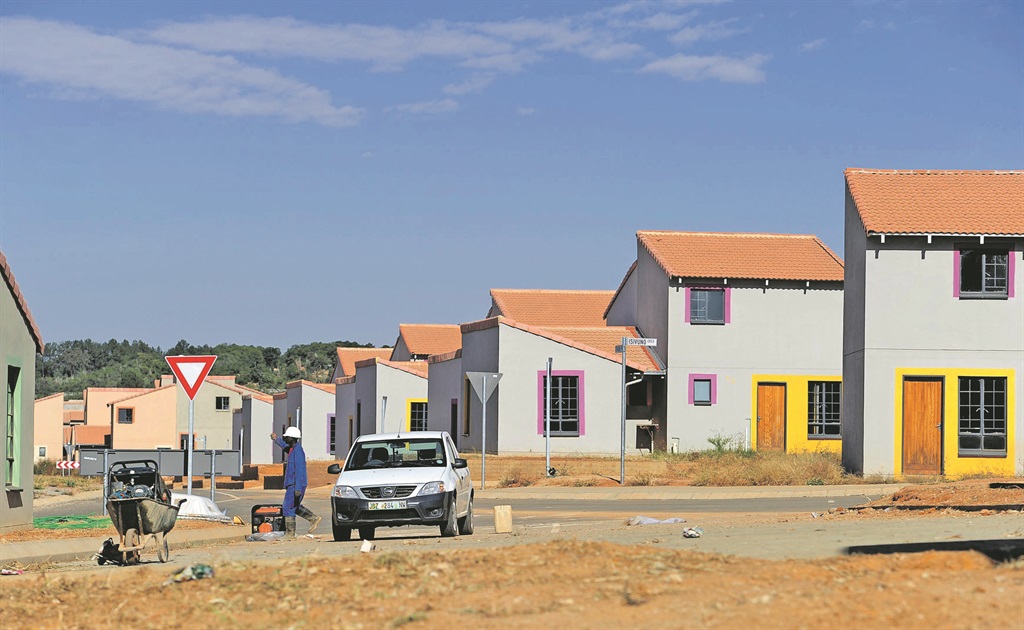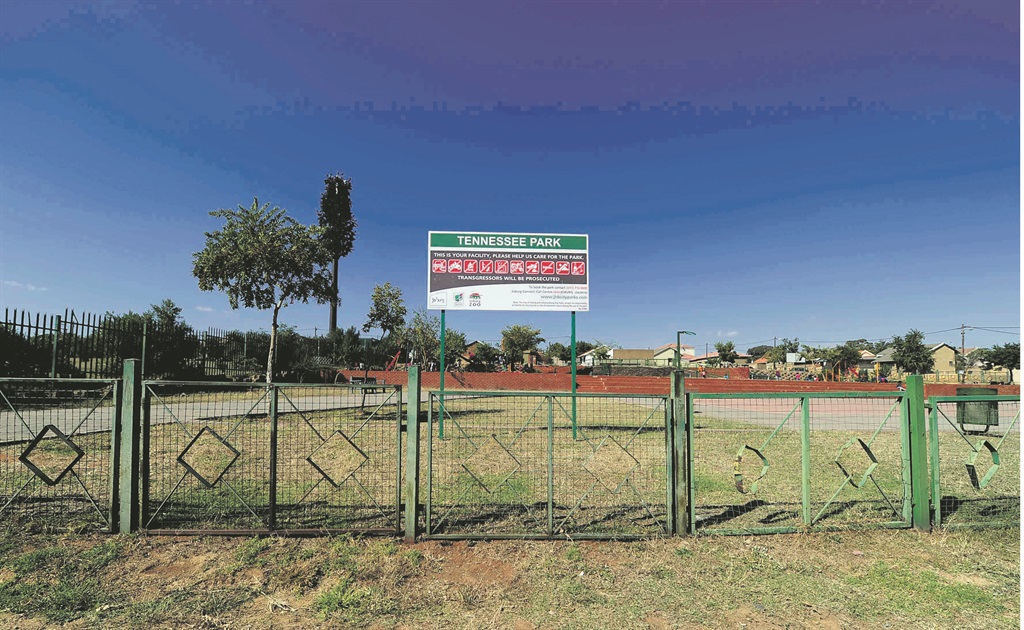
What is remarkable is the multiclass, multiracial and multinational character, writes Lindiwe Sisulu
Recently, the ANC government celebrated the incredible feat of delivering 4.3 million houses and subsidies. This means more than 20 million people – more than a third of our country’s population – now have a house to live in.
And we celebrated this in a city we have built over the past 10 years in Johannesburg, Cosmo City. It is an amazing place, just one of many examples of what we are building all over the country.
What is remarkable about Cosmo City is its multiclass, multiracial and multinational character. The city consists of 12 000 units, with mixed typologies that range from fully subsidised houses to bonded houses and rental units.
It is a thriving city with all the elements that our policy determines constitute a human settlement, complete with 12 schools, three shopping malls, health facilities, police stations, a community centre with a hall, 43 parks and recreational areas, a library, a cemetery and several churches.
This city contains people who time forgot in places such as Sgodiphola in Soweto. They are now fully fledged citizens – energetic, vibrant people, taking charge of their new lives.
A changed group of people who are no longer desperate and desolate. They have been given an opportunity to live a meaningful existence.
We have ensured that this new model of development finds expression in policy documents.
Our contribution in providing new thinking in development has not gone unnoticed. Last month, we hosted an international UN conference, where we were given the opportunity to shape and influence the future of international human settlement discourse, and subsequent policy and practice.
The theme of the conference was Urbanisation and Informal Settlements. This was our choice as host country.
We chose to speak about the pressing challenge faced by many of our people still trapped in conditions of squalor in places such as Khayelitsha, Gugulethu, Nyanga, Phillippi, Orange Farm, Polokwane, Mahikeng, Tshwane and Umlazi.
Indeed, part of the deliberation focused on the global implications of this reality. Central to the discussion was what needs to be done, given the fact that about 1 billion people in the world out of a population of 7.4 billion live in slums.
This is the unfortunate story of humanity in the 21st century, where wealth is accessed and reserved for only a few.
We cannot run away from addressing rapid urbanisation, especially given that about 63.6% of our people live in urban areas.
Hosting the conference forced us to confront the questions around those who set the world’s agenda, and what role we should assume to influence it.
Our choice of topic was deliberate because our concern about the poor is not an accident. It is central to how we are socialised in our political formation.
It is central to our ideology and our orientation: to be pro-poor and to be concerned about the most disadvantaged.
We approach this not out of sympathy, but out of an obligation borne of our experience of the all-consuming disadvantage of cultural, spiritual and material dislocation that apartheid bestowed on the majority of our people. It is as much a matter of commitment as it is of solidarity.
The choice of South Africa as host is also a mark of confidence that, because of our experience, we are in a better position to influence the global agenda.
We are pleased to be counted among the countries that have made significant contributions to improving the lives of those living in informal settlements, and we will continue to do so.
Even when faced with this near-impossible task, we are hard at work. For instance, a Stats SA survey released last month confirms that amid growing urbanisation, the percentage of people living in informal settlements has dropped from 17% in 2002 to 11% in 2014.
That would technically mean that we are providing shelter faster than the rate of urbanisation, which is 2.4%. This is good news.
Having drawn from the lessons of the past, we have resolutely decided that, to speed up delivery, we have to change the way we do business.
The first step is to create a new model of development that will unshackle the construction sector from the bureaucratic entanglement that has held it back.
We need the industry to deliver faster. In this model, the partnership that we experimented with at Cosmo City is instructive.
Here, government will provide the land and services, and the banks will focus on providing funding, as will our housing bank.
Contractors should focus on building houses. Our aim is to ensure that the private sector is stimulated to produce more. We want to unlock the full potential that exists outside government to ensure that its burden of providing houses is shared by those who can help.
We are introducing a framework that allows government to play its part while encouraging the market to participate as a full partner.
This system will also cut down on pseudo-entrepreneurs who try to use patronage to get into the construction business.
We will be investing up to R300 billion as we embark on implementing mega catalytic projects with the sole aim of providing new integrated human settlements that are aimed at improving the efficiencies of the space economy by ensuring that each settlement is socially, economically and spatially integrated.
These projects are expected to produce integrated mixed-use residential neighbourhoods in areas that are closer to places of economic opportunities and social amenities.
These will be built on the same model as Cosmo City, Fleurhof and others. So far, 46 such projects have been approved across various provinces.
Because the model is to sell the units to government, we are hoping for better quality and a faster turnaround time.
Given the massive backlog in housing, the rapid increase of urbanisation and the growing challenge of informal settlements, it is evident that the state cannot address this challenge alone.
It is a challenge that calls for partnerships between the state, the private sector and our communities.
In the same way that we became our own liberators, we can overcome the varied economic and social challenges that the condition of democracy continues to unfurl. For us, failure is not an option.
If all the role players and policies come together, we should be able to deliver 6 million houses and subsidies by the end of the current administration.
Playwright George Bernard Shaw could not have phrased our challenge better in his observation that “some people see things as they are, and ask why, and others dream of things as they never were, and ask why not”. Let’s all ask ourselves, why not.
Sisulu is human settlements minister
TALK TO US
Do you think government has done enough to provide housing for our citizens?
SMS us on 35697 using the keyword CITY and tell us what you think. Include your name and province. SMSes cost R1.50




 Publications
Publications
 Partners
Partners












